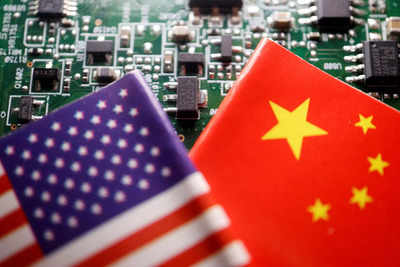
A US court ruled in favour of a Chinese chipmaker accused of stealing trade secrets from Micron Technology, dismissing charges of espionage. The ruling may impact the Biden administration's approach to prosecuting and the US-China tensions. US prosecutors lacked evidence to support claims against the Chinese company and its Taiwanese partner. Fujian Jinhua could have faced penalties if convicted.
In a surprising turn of events, a
US court
has ruled in favour of a Chinese chipmaker accused of
stealing trade secrets
from
Micron Technology
, a leading American
memory chip manufacturer
. The case, which had heightened tensions between the two countries, saw the court dismiss all charges against the
Chinese company
, finding insufficient evidence to support the claims of espionage.
According to a report by South China Morning Post, the accusations stemmed from 2018, when the
US Department of Justice
alleged that the Chinese company, along with its Taiwanese partner, had orchestrated a complex scheme to steal trade secrets worth billions of dollars from Micron. The stolen technology, related to advanced memory chip production, was believed to be crucial for China's ambitions in the semiconductor industry.
However, US District Judge Maxine Chesney delivered a verdict of not guilty for the company after a trial without a jury. The ruling, issued on Tuesday, might influence the Biden administration's approach towards prosecuting to safeguard American technology.
The Judge ruled that US prosecutors lacked evidence to substantiate claims of the Chinese state-backed firm's infringement upon proprietary data from Micron Technology Inc., the largest memory-chip manufacturer in the United States. Allegedly, the data passed through Taiwan's United Microelectronics Corp. as part of a manufacturing arrangement with Fujian Jinhua.
If convicted, Fujian Jinhua could have faced a fine and potentially been ordered to forfeit chips and income linked to the purportedly stolen technology, according to a statement from the Justice Department when the case was initially filed.
Neither Fujian Jinhua, Micron nor the US Attorney's office in San Francisco, and the Chinese embassy in Washington have publicly commented on the decision.
In the last few years, the US has pursued and secured numerous convictions against individuals for illicitly transferring intellectual property to China. However, prosecuting Chinese companies in US courts has been a rarity for the Justice Department.












 English (US) ·
English (US) ·